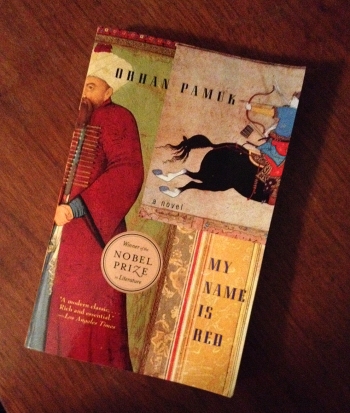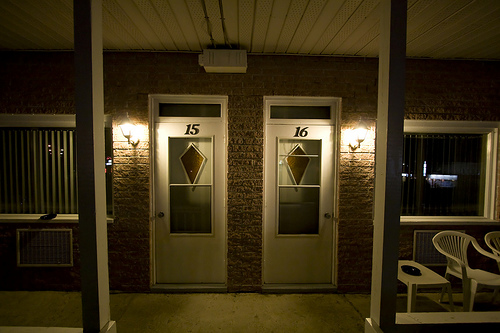Another Cross-post from My Long Ago and Faraway blog:
Interview with Annamaria Alfieri
I met Annamaria Alfieri at the Historical Novel Society Conference in St. Petersburg, FL in June. She was so much fun to talk to that we have kept in touch.
Annamaria is the author of three murder mysteries set in South America. She has graciously agreed to take a little time out of publicizing her new murder mystery, Blood Tango, to answer a few questions for our blog. (Yay! Our first interview!)
I came to Blood Tango with zero background knowledge of the events surrounding Peron and Evita – in my theatre days I neither worked on nor saw a production of the Broadway hit “Evita”. Even so, I was able to enter right into the story context with Annamaria as my guide.
Why historical fiction?
I read my first historical novel when I was fourteen: Katherine, by the great Anya Seton. I hated studying history in school. It was all about memorizing dates, the causes of war and which country won. No context, no understanding of the people involved, certainly not of their emotions. Dry.
I did not think of writing historical novels myself, however, until I went to Potosi (Bolivia) and became entranced with its beauty and then its history. That’s when I decided that, rather than continue with the contemporary fiction I had been working on, I would write a historical mystery that took place there, as a way of communicating more broadly some fascinating and mostly unknown history. The result was City of Silver. (See the YouTube interview of Annamaria discussing her inspiration for City of Silver!)
Why Argentina? Why not some topic more familiar to readers?
Blood Tango is my third historical mystery. Once I set out telling about South American history, I stuck with it through three books. You are right. It is unfamiliar territory for many North American readers, but that is why I chose it. I think fiction readers in general, and mystery readers in particular, like to learn as well as be entertained. Most North Americans know very little about the history of the intriguing continent south of ours. There aren’t many novelists writing about that and I hoped to open a niche for myself there.
Did you come to the project with much background knowledge? Or did you have to start from scratch like I did while reading the book?
In all three cases, I began on unfamiliar ground. I had to research thoroughly to get a sense of the times, the place, and especially the historical characters.
What was the hardest part about writing this story in this context?
In the case of Blood Tango, all most American’s know about Evita, for instance, is what they learned from the Broadway musical. And that version of the history is distorted. That made the writing more difficult because I wanted to tell a compelling story, and try to do it without fighting too hard against the readers’ possible misconceptions.
I understand you’ve done some particularly creative events to publicize the book. Can you tell us about those? What did you learn from these efforts?
My daughter is a dancer, and we came up with the idea of doing a film featuring tango dancing. She produced and directed it, the choreography was done by the Paul Pellicoro Dancers. You can see it on YouTube here.
It got quite a lot of compliments and has been seen by, as of today, almost 1500 people. I am proud of it, especially since the choreography between the principal dancers captures what I think was the real relationship between Evita and Juan Peron.
You said to me at conference that you planned to be back at work writing the next book by July 1st. Have you managed to do that with publicity and life continuing to demand attention?
I DID! With the book touring, I have not been able to throw myself into it completely, but I am closing in on 20,000 words. This is a first draft of course. It will need a LOT of polishing before it is done.
I’m always interested in other writers/artists’ work habits. Do you have a daily writing schedule or goals that you try to stick to?
When I am in the first draft, I try to work six days a week. It takes a lot of energy to get my head into the story. If I leave it for two days, it is harder to get back into it to keep going. I am much more productive if I can hold on to the thread of the story. Even if it is just for an hour. Besides, I am happy when I am in the story. All the slings and arrows of everyday life can’t reach me if my mind is in the long ago and far away. I do not have to be coaxed to write.
Any time management tricks you recommend? Or is it “just say no” to everything else possible?
Your readers may not want to hear this, but I gave up reading magazines and almost all TV watching. I stay in touch with friends mostly on FaceBook and email. I don’t chat much. I cook, which I love to do, but only my thirty-minute meals except on Sundays. I take care of my family responsibilities. After that, my first priority is writing. Period. Full stop.
And anything else you would like to add would be great!
I love the idea for this blog. Lots of historical fiction is appealing and I do read and enjoy the stories that take place in the familiar times and locations. But I have such a fascination with the exotic. I am happy to be able to come here and find out what’s new on that horizon.
Thank you, Annamaria!


